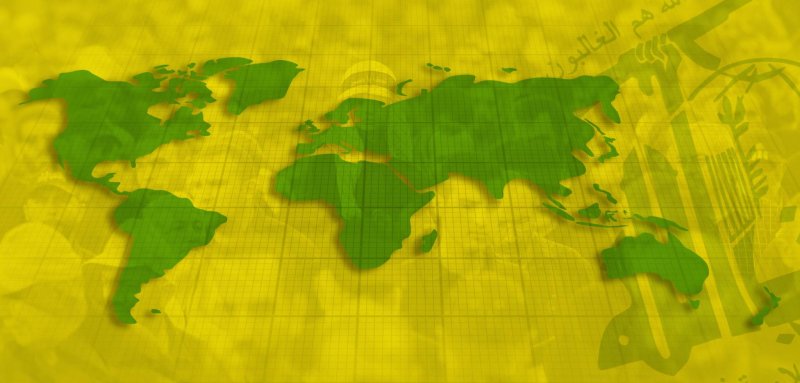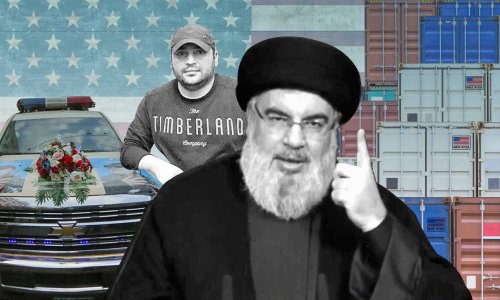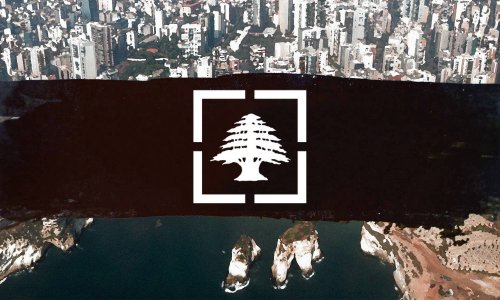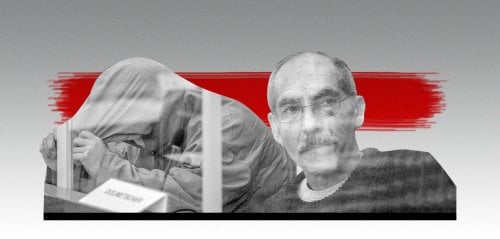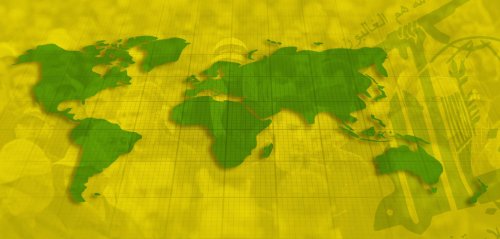The European area that seemed to be a “safety oasis” for Hezbollah is no longer so, as a result of several developments and pressures that occurred over the past few years. This has been demonstrated clearly with the German decision to place Hezbollah on the terrorist list on April 30th, 2020.
The German decision can neither be detached from regional variables and the party's involvement on many fronts, especially the war in Syria, nor from the constant American pressure on Merkel's successive governments to take such a decision, parallel to Israel's desire to further leverage Germany’s Nazi history.
Following the decision to ban Hezbollah, many questions were raised about the background of the German ban and the European position in general. Why now, and what consequences does it have for Hezbollah and Germany as an international player in the Middle East? What about the view that the ban will not change much in relations between the two, but will move it from public to “under the table”?
How does the German ban affect Hezbollah?
On Thursday the 30th of April, German Minister of Interior Horst Seehofer issued a decision banning “the activities of the Shiaa terrorist organization Hezbollah”, as stated in a press release issued by the Federal Ministry of Interior, Construction and Local Affairs of Germany.
The ban is based on article 18 of the Act Governing Private Associations, “because the activities of Hezbollah violate criminal law and the organization opposes the concept of international understanding”, as stated in the Ministry's press release.
According to the 30-page order imposing the ban, Hezbollah´s slogans are prohibited in public places, in assembly, in print, audio or visual material. Additionally, the assets of Hezbollah available are confiscated and forfeited to the benefit of the Federal Republic of Germany under the Act Governing Private Associations.
Following the decision, German police raided Hezbollah cultural centres, organizations and mosques (at dawn on Thursday) in Berlin, Bremen, Muenster and the state of Northern Rhine-Westphalia.
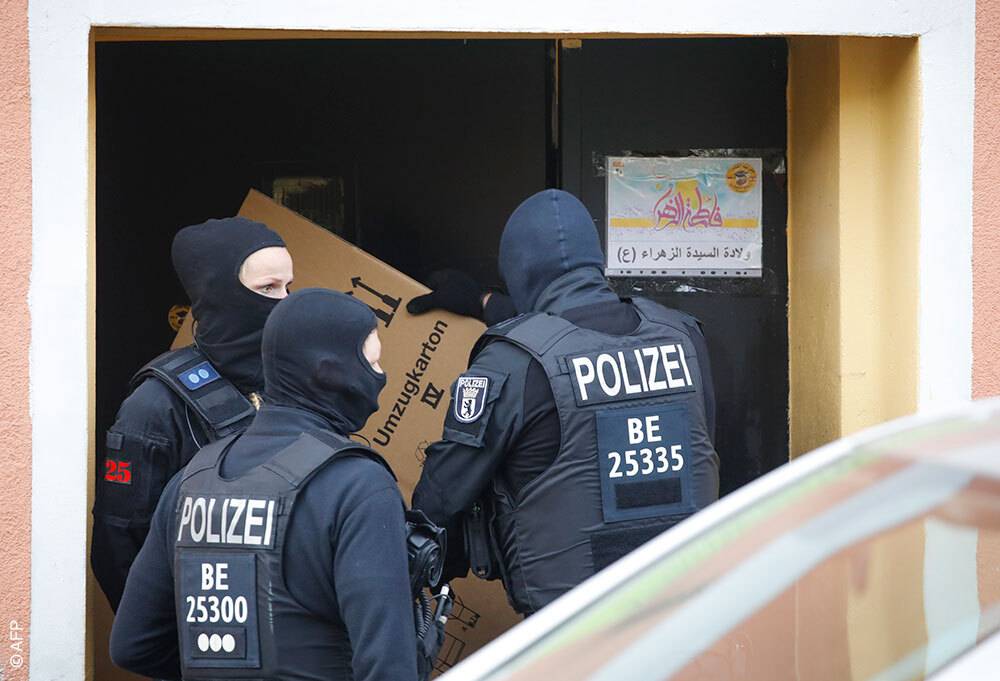
According to an article published by Der Spiegel titled “Seehofer acts against Hezbollah”, the party supporters can no longer be active in Germany, and German security officials will investigate mosques associated with Hezbollah in three German states.
The Minister of Interior confirms that associations subject to the investigation measures are suspected of being terrorist organizations, in the light of their financial and propaganda support for Hezbollah.
Following the decision to ban Hezbollah, questions were raised about the background of the German ban and the European position in general. Why now, and what consequences does it have on Hezbollah and Germany as an international player in the Middle East?
According to reports, there have been “visiting Sheikhs” in recent years, sent to Europe by Hezbollah’s External Relations Section. Thus, “the impact of Hezbollah leadership in Lebanon on the supporters living in Germany and the activities of their associations can be assessed as high”, as stated in the text of the ban decision.
Background of the Decision
The long-awaited German decision comes after years of pressure on Angela Merkel’s successive governments, especially through the efforts of Richard Grenell the US ambassador in Germany. Germany’s ‘Bild’ newspaper has detailed the reasons behind Germany’s decision amidst the Corona crisis.
At the European Union level, only Hezbollah’s military wing is listed as a terrorist organization, not the entire party, mainly because of France's reluctance. Britain had put the party's military wing on the terrorist list last year.
In September 2019, a strong campaign was launched on Hezbollah in Germany, whereby the largest parties in the German Parliament `the Bundestag`, urged the Government to completely ban Hezbollah. The decision was approved last year and came into action now. Additionally, in November 2019 the Ministries of Justice, Interior and Foreign Affairs had agreed to ban Hezbollah's representation.
Consequences of the Ban
The Berlin newspaper Tagesspiegel stated on Friday the 1st of May that the organizers of the ‘Quds Day` demonstration had cancelled it, after having received a license to demonstrate as every year.
The Berlin Senator for Internal Affairs, Andreas Geisel, commented on the decision to cancel the demonstration: “We all survived the most disgusting anti-Semitic events, it is good news for Berlin.”
The German authorities estimate the number of Hezbollah supporters in Germany to be about 1050, and intelligence sources report that Germany was a “safety oasis` for the organization.
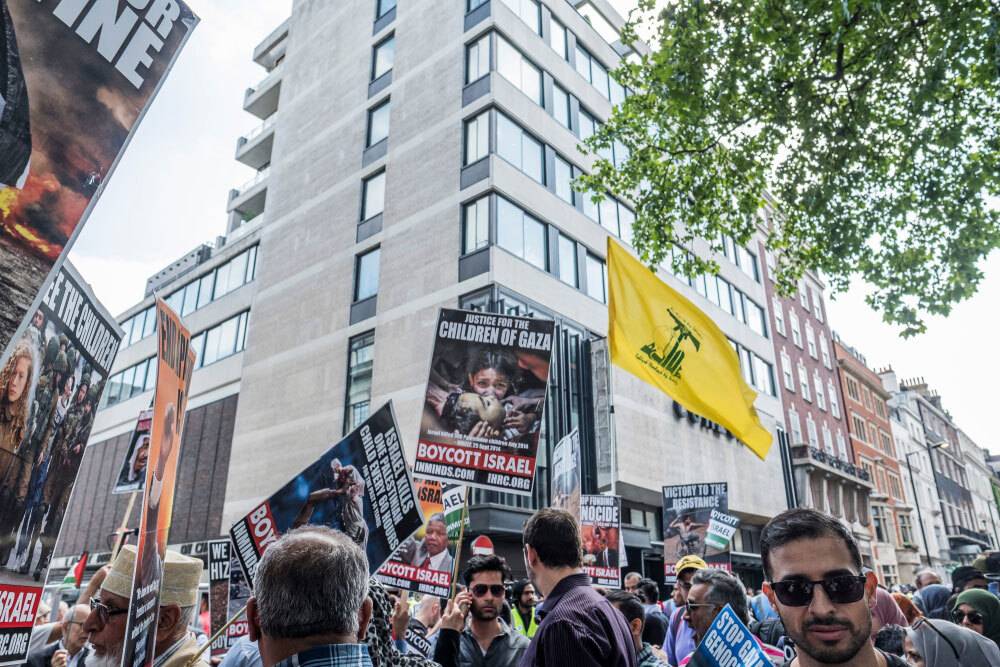
Germany accuses Hezbollah of open anti-Semitism, as hundreds of demonstrators march the streets of Berlin on `Quds Day` with slogans calling for the demise of America and Israel.
Hussein M., a Lebanese resident in Berlin, commented on the German police raid of the ‘Irshad Center` saying that “It is such a pity, this is unjust for the people. Hezbollah will not be harmed by the ban; its politicians are in Lebanon and they don’t harm anyone here. We benefit from these centers because we want to teach our children Arabic and religion, we don't care if those who run the centers belong to Hezbollah or not...”.
He adds: “People in Lebanon support the party (Hezbollah) and the resistance, but closing these centers harms the Lebanese families who want to teach their children. Yeah, these centers are visited by religious men who come to Germany, they provide them with lodging and food, they recite for us Ashoura Majlis, because we're deprived of many things here. In Ashura, we meet and benefit from this gathering and by closing the centers, we will lose this climate, and this ban did not harm Hezbollah, but rather the people who are looking for a sense of belonging in observing the customs and traditions of their home country.”
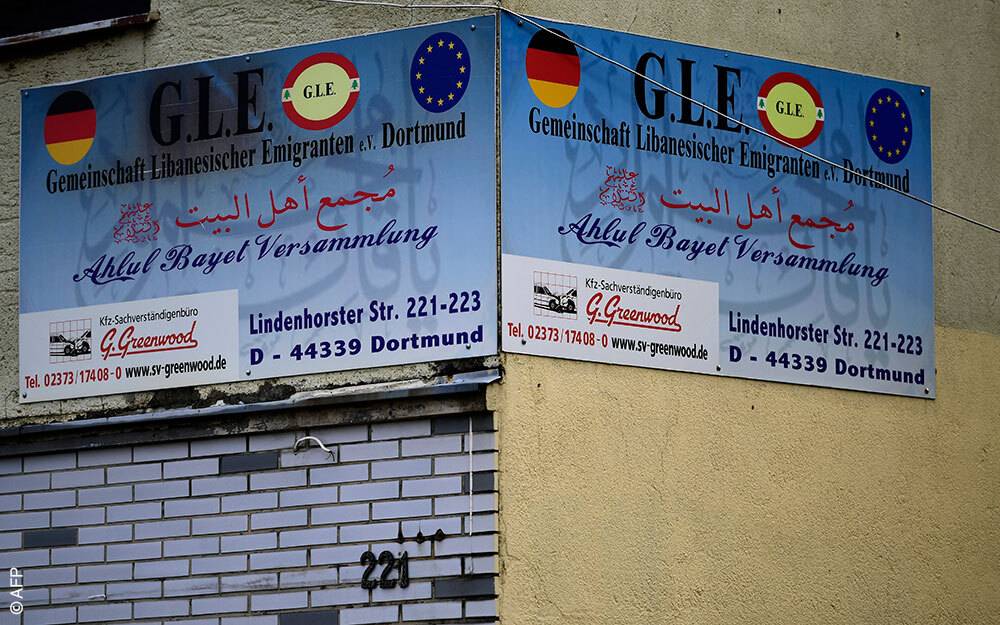
On the other hand, observers suggest that the German move came in the context of the American effort to dry up the sources of Hezbollah funds, as organizations close to the party in Germany were collecting donations and transferring them to Lebanon, according to "Der Spiegel", which also pointed out that the German Ministry of Interior has banned the ‘Lebanese Orphan Project’, which was collecting donations and transferring millions of Euros to the families of deceased Hezbollah fighters, as the German Interior Ministry claims.
Lebanese writer and analyst Rami Kanaan sees that the direct consequences of the German decision to place Hezbollah on the terrorist list are economic. On the financial level, the party will be affected because Lebanon faces currently a serious economic crisis and the party needs considerable social solidarity and depends highly on the Lebanese expatriates remittances to alleviate the harsh economic and social situation.
In his statement to Raseef22, Kanaan expects that remittances from expatriates in Germany will be limited to their relatives and that expatriates will be afraid to donate or make transfers to Hezbollah associations. Additionally, he believes that close scrutiny over Hezbollah in Germany may hinder even the personal transfers to families and relatives, the thing which will create additional pressure on Hezbollah.
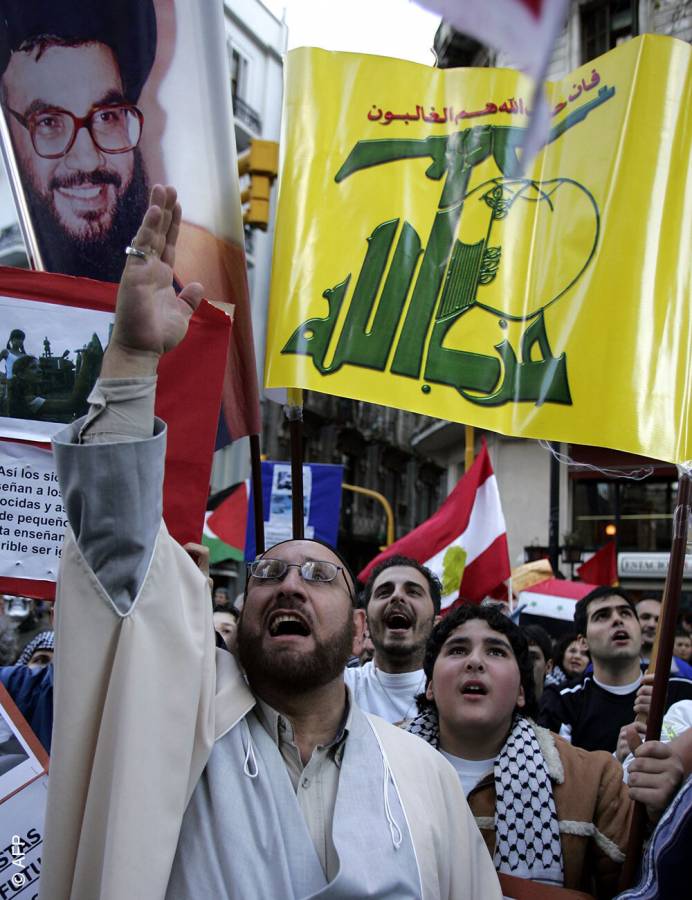
In Kanaan's opinion, Germany has always been a trusted intermediary between Hezbollah and Israel in negotiations and prisoner exchange deals .The new limitations on Hezbollah as a “terrorist party” have resulted in the party losing this trusted mediator in addition to the growing hostility towards it in Europe and increasing its international isolation.
Americans and Israelis welcome the move
In a talk to the German newspaper `Welt` about the decision, the German Foreign Minister Heiko Mass stated: “Hezbollah denies Israel's right to exist, threatens violence and terrorism, and continues to develop its arsenal widely.”
He clarified further the political discussions that preceded the decision by stating that `the political reality in Lebanon is complex. But this should not prevent us from using legal resources in Germany to deal with Hezbollah's criminal and terrorist activities.”
German International lawyer Andreas Schulz said: "Germany does not want to lose its grip over its carefully woven relations with Hezbollah and risk being outside the political game in the Middle East. Thus, it will keep the channels open with the party, but not publicly."
Several reports have also indicated that the Austrian National Council has followed the German example and initiated procedures for banning Hezbollah and announcing both his military and political wings as a terrorist organization.
Israel and the United States have praised the German move, and the Israeli Ambassador in Berlin Jeremy Issacharoff said: “We welcome Germany's very important and reasonable step in combating international terrorism”.
In turn, US Ambassador Grenell applauded the German decision in several tweets where he declared that Hezbollah “must not be allowed to use Europe as a refuge to support terrorism in Syria and the Middle East as a whole” and urged other European countries to take similar steps.
Additionally, the Israeli Foreign Ministry welcomed Germany's decision, and Israeli Foreign Minister Yisrael Katz expressed his "deep gratitude" to the German government for the measure, saying that he was "sure that many governments in the Middle East, as well as thousands of victims of Hezbollah terrorism, welcome this decision."
"Under the table"
In an interview with Raseef22, German International lawyer Andreas Schulz, who was part of the international investigator´s Detlev Mehlis team in Beirut investigating the assassination of Prime Minister Hariri in 2005, is skeptical of the announcement of the German Minster of Interior as he announces: “There is no validity to what the Minister says, it is not possible to track down investigate 1050 people because they are allegedly Hezbollah sympathizers, that is unreasonable,” expecting that the relationship between Germany and Hezbollah will move from public to under the table or what is known as `silent diplomacy`.
In Schulz’s opinion, the pressure exercised on Germany by the United States and Israel to align its position with them and declare Hezbollah a terrorist organization was very clear.
However, Schulz contends that Germany does not want to lose its grip over its carefully woven relations with Hezbollah and risk being outside the political game in the Middle East completely. Thus, it will keep the channels open with the party, but not publicly.
"Germany's position as a player in the Middle East is not like that of France, Britain or the United States, and it is very different from the strong French influence in the region for many political and historical reasons" Schulz explains.
Therefore, according to the lawyer who is familiar with the back stage of the relationship between Germany and Hezbollah, Germany is trying to find a foothold in the region among the big players or else it will be completely out of the game, especially with new influential powers like Russia and China entering the region.
Andreas Schulz reckons it is unlikely that France will follow Germany's course soon, because the French relations and influence in the Middle East are historically rooted and much stronger than the German relations. Therefore, it is not expected that France would easily concede to American pressure to change its relationship with influential actors in the region.
Nonetheless , Schulz expects that only smaller countries within the European Union such as Austria and Malta will follow the German move, but nobody more prominent.
The German lawyer warns that should Germany align its policy completely with the American and Israeli position, “it will lose all influence in the Middle East among major actors with long experience in the region”.
What about France?
French-based Lebanese writer and analyst Ahmed Issawi told Raseef22 that so far, France places only the military wing of Hezbollah on the terrorism list. Besides, French President Emmanuel Macron has stated that `there is a big difference between the political and military wings of Hezbollah, and we will continue to differentiate between the military and political wings of the organization".
Issawi believes that France has so far refused to put Hezbollah fully on the terrorist list because it “plays under the table with Iran” in pursuit of economic deals.
However, Issawi expects France to change it course now following the German decision `because Germany is the leading and most influential power in the EU`.
As for France, Issawi pointed out that `most French newspapers wrote about the German ban yesterday and reflected a unified position: How long will Macron wait until he makes a similar decision? The French media urged that such a decision should be taken in France as well and is already overdue."
Raseef22 is a not for profit entity. Our focus is on quality journalism. Every contribution to the NasRaseef membership goes directly towards journalism production. We stand independent, not accepting corporate sponsorships, sponsored content or political funding.
Support our mission to keep Raseef22 available to all readers by clicking here!
Interested in writing with us? Check our pitch process here!
